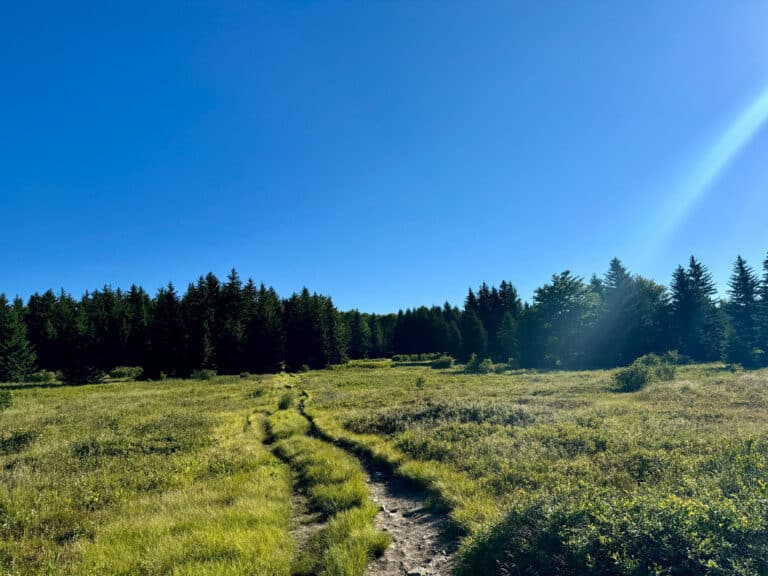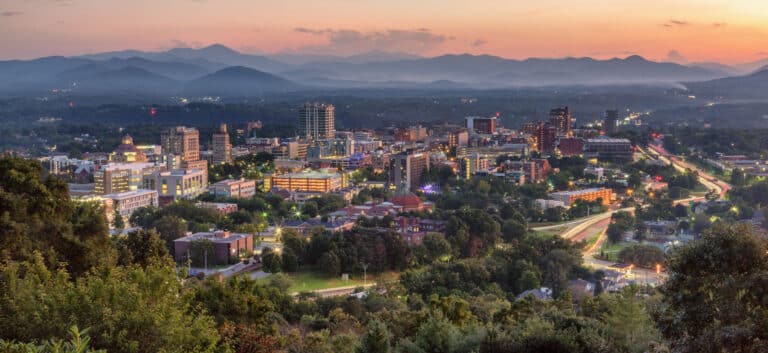Sports fans, step up to save your team’s species
If you’re like 71% of Americans, you have a sports team that you root for. And most sports teams are named after animals. The most popular sports team names include Tigers, Wildcats, and Wolves—animals that are all endangered.
Here in Appalachia, our sports team’s animals are especially imperiled. They need fans like you rooting for them.
Hell Yeah!
Asheville’s professional soccer team recently adopted a new team name: the hellbenders. It’s an awesome team name—and far more badass than Asheville’s professional baseball team name: the Tourists.
Hellbenders are giant salamanders that lurk on the bottoms of Appalachian rivers and streams. They are North America’s largest salamander, growing as long as your forearm and weighing up to five pounds. Hellbenders breathe through their slimy skin and nest beneath river boulders, where male denmasters guard their eggs.
In December, the U.S. Fish and Wildlife Service proposed hellbenders for listing under the Endangered Species Act. Their populations have plummeted due to dams, development, and deforestation. Hellbenders depend on clean, cool mountain streams. Sediment-choked water is lethal to these leviathans. Protecting forests and removing dams are the two best ways to save hellbenders: Forest buffers along streams keep the water clean and cool, and free-flowing rivers enable hellbenders to feed and reproduce.
What’s good for hellbenders is also good for us. Forest-shaded, free-flowing streams provide clean drinking water and healthy trout streams for our region.
Hellbenders and their habitat were hammered by Helene. The places where the storm hit hardest were also some of the best remaining hellbender strongholds. Hundreds of dead hellbenders were reported along rivers in western North Carolina and eastern Tennessee, and thousands of nests were washed away. Now this endangered species is even more imperiled.
It’s especially exciting that Asheville has adopted hellbenders as their mascot. They have a lot of folks cheering for them, and both hellbenders and the city of Asheville are already beginning a remarkable comeback.
Wolfpack’s Howl
In 1983, the N.C. State Wolfpack, led by coach Jimmy Valvano, stunned Houston to win the NCAA basketball tournament. Today, their Wolfpack namesakes are the ultimate underdogs fighting for survival.
N.C. State’s Wolfpack are named for the red wolves that once roamed the region. Only 16 red wolves remain in the wild. They cling to survival in a corner of coastal North Carolina near the Outer Banks, where they are the most endangered wolves on the planet.
Red wolves once roamed from New York to Texas, but they were nearly hunted to extinction by the 1960s. A few were captured and brought into captivity, and in 1987, 14 were reintroduced in two North Carolina wildlife refuges. They flourished in the wild, and their population grew to more than 120 red wolves. However, in the past decade, gunshot mortality and vehicle collisions reduced their numbers to as few as seven.
Fortunately, red wolves just received a lifeline: North Carolina DOT just received $31 million to build wildlife crossings across a deadly stretch of highway that has killed five red wolves in the past two years. More than $4 million was raised by donations from 13,000 supporters. This red wolf booster club may have just helped save this species.

Go Terps!
University of Maryland’s team name celebrates the diamondback terrapin, a coastal turtle with gorgeous concentric rings on its shell. In the middle of the university’s campus, students make offerings to a giant terrapin statue before final exams, and athletes rub the statue before big games.
Sadly, terrapin populations have crashed in recent decades, primarily because of crab traps. Blue crab traps often snare terrapins, which are air-breathing reptiles that drown in these underwater cages. More than 60,000 terrapins drown each year in crab traps. As a result, diamondback terrapins were proposed for Endangered Species Act protections last year.
Fortunately, an easy solution exists: for less than $2, an entrance reducer can be fitted onto crab traps to keep terrapins out. Called bycatch reduction devices (BRDs), they are already required in some states, but not yet in Maryland or Virginia.
Terps fans are already clamoring for BRDs to save their namesake species. The university newspaper recently published a front-page story about the endangered turtles and the challenges they face. Now it’s time for tailgaters and fans across the region to rally for their endangered turtle.
Sports Fan Nation
More people watched sports last month than voted in the last election. Sports fans are the biggest and most influential segment of the American population. Just their chump change would go a long way to protecting the world’s imperiled Lions, Tigers, and Bears—and Terrapins, Red Wolves, and Hellbenders.
Even non-endangered species need help. Most team name animals are predators whose populations are declining and whose habitats are shrinking.
The influence of sports fans and teams could be game-changing. Athletes could be the ambassadors for their team animals. What if every sports team committed 0.1% of its profits to protecting its animal namesake? Even just a penny added to ticket sales or merch could save their species from extinction.
Until then, perhaps sports fans can advocate on their own for stream protections, dam removals, and wildlife crossings that give their team’s species a fighting chance.
Sports fans, make some noise!
Cover photo: Photo courtesy of USFWS







